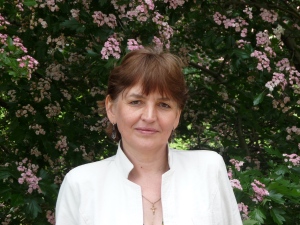Nature.com:
Quirin Schiermeier 21 September 2012

Posted via email from Vasily Eremenko
Outcry over jailed Russian chemist
Narcotics expert Olga Zelenina falsely accused of aiding drug trafficking, say supporters.
Quirin Schiermeier 21 September 2012

Olga Zelenina.
N. ANDREYEVA
Article tools
For Olga Nikolaevna Zelenina, a Kafkaesque nightmare has come true.
The Russian chemist stands accused of complicity in organized drug trafficking, and is currently imprisoned in Moscow’s detention centre number 6, where she shares a cell with Nadezhda Tolokonnikova, a member of the prominent activist punk band Pussy Riot.
But Zelenina’s supporters say she is the victim of a monstrous miscarriage of justice, and has done nothing more than provide an expert opinion on the opiate content of a consignment of poppy seeds. They are pessimistic that a court hearing scheduled for 24 September will result in her immediate release.
Expert witness
Zelenina heads a laboratory at the Penza Agricultural Institute, some 600 kilometres southeast of Moscow, one of the best-equipped chemical-analysis labs in Russia. She is a specialist in the biology of hemp and poppy, and is a sought-after expert in legal cases involving narcotics produced from these plants.
“Surely you cannot put a scientist in jail just because you don’t like her opinion?”
In September 2011, the defence attorneys of Sergey Shilov, a Russian businessman under investigation by the Russian Federal Drug Control Service (FDCS), asked her to provide an expert opinion on the amount of opiates that could possibly be extracted from 42 metric tonnes of food poppy seeds that Shilov had imported from Spain in 2010.
Cultivation of the opium poppy (Papaver somniferum) has been banned in Russia since 1997. But the import of poppy seeds for use in foods, such as cakes and bread, is legal — as long as they are 100% free of narcotic opium alkaloids such as morphine and codeine. Poppy seeds do not contain these alkaloids, but other parts of the plant that do, such as poppy straw, can become mixed into shipments as a result of poor harvesting practices.
In her expert report, Zelenina stated that it is technically impossible to fully eliminate such impurities from poppy seeds, as Russian laws require. She also wrote that the seized seeds did not contain any deliberately added narcotic compounds, says Natalia Andreeva, Zelenina’s Moscow-based lawyer.
On the basis of gas-chromatography and mass-spectrometry measurements of samples analysed in her lab, Zelenina calculated the overall morphine and codeine content in the poppy-seed consignment in question to be 0.00069% and 0.00049%, respectively. In such low concentrations, opiates can only be identified or extracted in well-equipped analytical chemistry labs, she wrote.
“This opinion apparently failed to satisfy the prosecutors,” says Irina Levontina, a linguist at the Russian Language Institute in Moscow, who is frequently heard as an expert in libel and drug lawsuits. “It has become quite common for Russian prosecutors to accuse independent experts if they don’t like their opinions. It can be downright dangerous for experts to appear in court.”
Summary arrest
In the early morning of 15 August, a group of FDCS officials accompanied by masked and armed members of a special police unit entered Zelenina’s home in Lunino, a town in the district of Penza. They arrested her and took her to Moscow, where she was charged with aiding and abetting attempted drug trafficking by an organized group. On 20 August, a judge at Moscow's Zyuzino District Court ordered her detention until 15 October, says Andreeva.
“Olga Zelenina has been asked for her honest scientific expert opinion and is now kept in jail for no reason other than having provided just that,” says Mikhail Gelfand, a biologist at the Institute for Information Transmission Problems in Moscow. “I have read her report, and to me it looks absolutely reasonable. There is no justification at all to keep her in detention.”
“Olga has done nothing else than her duty as a scientist and as a citizen,” adds Andreeva. “Surely you cannot put a scientist in jail just because you don’t like her opinion?”
A Moscow city court will decide on Monday whether she will be released from detention until an as-yet unscheduled trial date.
- Nature
- doi:10.1038/nature.2012.11462
Posted via email from Vasily Eremenko
No comments:
Post a Comment